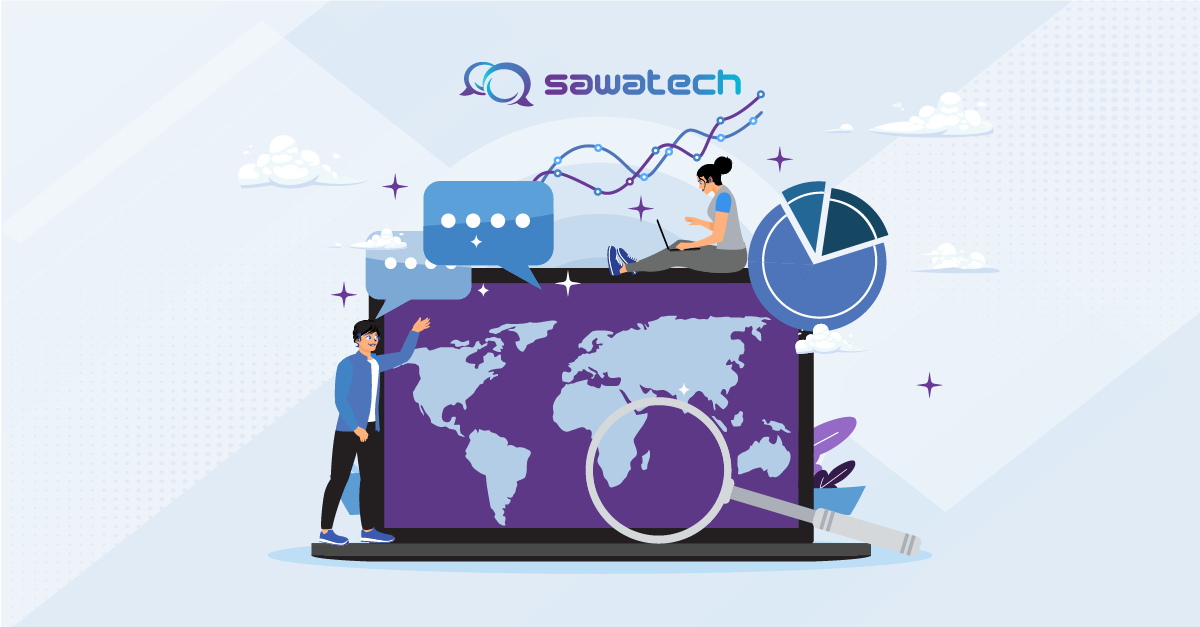Nigeria, also known as the giant of Africa, is a linguistically and culturally diverse country boasting over 200 million people, making it the most populous black nation and largest market in Africa. Lagos, its former administrative headquarters, is the boiling point of trade and the most populous city in Nigeria.
Despite being a linguistically diverse country with over 500 languages, only a few of its languages (Yoruba, Igbo, Hausa, and Nigerian pidgin) and its official language, English, are widely used for business, public administration, and education. Businesses seeking to venture into the Nigerian market would require a Nigerian language translation service to close the communication and cultural gaps that may arise when targeting the Nigerian market. Languages play a key role in facilitating business deals as most consumers are often drawn to products and services that speak their languages. This is why it is important to employ the services of a Nigerian language translation agency for business success in Nigeria.
Before delving deeper into this exciting topic of localizing content for the Nigerian market and sharing strategies for content localization in the Nigerian market, let’s look at what content localization is.
Content localization, in simple terms, refers to creating and adapting content for a brand’s product or service to a specific market while considering their cultural nuances, languages, and other factors peculiar to that region.
Content localization, when approached holistically, can have incredible benefits for any brand. Such benefits include easy penetration of new markets, improved customer satisfaction, brand loyalty, and increased revenue.
The Nigerian Market
With a population of approximately 227 million people with diverse ethnicities and cultural backgrounds, Nigeria has the largest market in Africa. It is one of Africa’s leading producers of crude oil and other natural resources. The oil and gas sector, power sector, Infrastructure, services, consumer products, Digital Economy, and Agriculture characterize the Nigerian Economy.
- Agricultural Sector: Nigeria has a favorable climate for Agriculture and vast arable land for different plant species. Some agricultural produce grown in Nigeria includes tuber crops such as yam, cassava, three-leaf yams, potatoes, cocoa, groundnut, rice, watermelons, oranges, corn, tomatoes, etc. Livestock farmers in Nigeria also produce meat, milk, fish, and eggs. A more significant percentage of Nigerian farmers are into subsistence farming, and only a few are into large-scale mechanized agriculture. The agricultural market in Nigeria is highly profitable as the nation still imports most of its food.
- Oil and Gas Sector: Nigeria houses some of the largest natural gas deposits in the world, with about 206.5 trillion cubic feet of oil reserves. This sector is among the highest contributors to the government’s revenue and accounts.
- Power sector: The Power Holding Company of Nigeria (PHCN) is Nigeria’s leading power distributor. Due to the unstable nature of power supply in Nigeria, most businesses use supplementary power supply sources such as Plants, solar, inverters, etc. Solar panels and other power-generating sources are usually sought after to cushion the effect of power failure, especially by business owners. Nigeria has many renewable energy resources yet to be tapped, such as hydro, biomass, wind, biogas, solar, and geothermal.
- Infrastructure: As compared to other African nations, Nigeria’s infrastructure has greatly improved over the years; there are motorable roads, rails, and ICT networks across its 36 states.
- Services: The Nigerian service sector accounts for over 50% of the nation’s GDP, and the key players are ICT, real estate, trade activities, financial services, and science and tech services.
- Consumer Products: Nigeria is known for the high importation of food and clothing; some highly south-after consumer products in Nigeria include food, drinks, textiles and apparel, cosmetics, and home appliances.
- Digital Economy: Over the past few years, tech talents have emerged from Nigeria, contributing to its digital economy’s majority being within the age bracket of 20 – 35. Most of these talents work remotely for multinationals or are freelancers listed on freelance platforms like Upwork, Fiverr, or LinkedIn.
Overview of Nigerian Languages
Nigeria is a linguistically diverse country with over 500 languages spoken by different religious and ethnic groups. The dominant ethnic groups in Nigeria are Hausa/Fulani (29%), Yoruba (21%), Igbo (18%), Ijaw (10%), Kanuri (4%), Ibibio (3.5%), and Tiv (2.5%). English is Nigeria’s official language due to its colonization by the British before she gained independence in 1960. English is used for all legal, administrative, official procedures and documentation. The major Nigerian local languages used in publications are Hausa, Yoruba, Igbo, and Pidgin English. Other written languages include Ijaw, Uhrobo, Bini, Ekpeye, Efik, Ibibio, Kalabari, and Tiv.
Written English in Nigeria is generally done using British spelling, although American spelling is also widespread. However, sticking to a specific spelling throughout a text is advisable.
Nigerian pidgin, although not formally recognized by the Government, is used across all Nigerian states. It is the street language amongst Nigerians, and most Nigerian businesses utilize it to run adverts in the media. It is a generally accepted language by Nigerians and can be understood by people of all social classes and ages.
Strategies for Effective Content Localization
Content in the context of this article is categorized broadly as information either in audio, visual, or textual format. Below are some strategies for effective content localization to suit the Nigerian Market.
Texts: For text-based content to be engaging, it should reflect the diversity of the Nigerian population. For religion-related content, consider all religions practiced in Nigeria: Islam, Christianity, and traditional African religions. Consider incorporating phrases in the following languages, Yoruba, Igbo, Hausa, or pidgin, into marketing and promotional content, depending on the target audience. For audiences in the older age brackets, the local Nigerian language is a good option; for the younger generation, Pidgin or just English would work very well.
Texts drafted for campaigns and public announcements should adhere to the policies and guidelines of the Nigerian Communications Commission.
Audio: Accent and tone are essential when creating Audio content for a Nigerian audience. It is better to use celebrities fluent in the target language to voice the content. Most brands that embark on campaigns in Nigeria produce audio messages both in English and in the dominant local languages. For example, during COVID-19 19, the government and health institutions created awareness about the pandemic by translating and voicing into several Nigerian languages for broader reach.
It is also essential to pay attention to tone when delivering a message to Nigerians. Nigerians are very jovial people who love humor, as is evidenced by the nature of advertisements that are produced for the Nigerian context. Therefore, when creating audiovisual content, a touch of humor and a combination of English and a local language will grab the attention of many Nigerians. During the just concluded African Cup of Nations hosted in Ivory Coast, many brands operating in Nigeria created memes, and some added humor to their marketing campaigns while following the football trend. This led to more engagements by Nigerians and increased trust and brand awareness.
Visual content: Generally, in advertisement and communication campaigns, using images that locals can relate to is preferable. Images of the local setting, famous sites, and renowned personalities, such as actors and musicians, can go a long way in promoting the acceptance of a product or service. Cultural diversity can also be represented in images through the use of key cultural identities. For example, Yoruba can be represented with the Agbada for men and Buba for women, and Hausa can be represented with Babban riga, jelabia, and a hijab for the Muslim ladies. The Igbos are identified with native wear made with Akwete or other colorful materials. Their females are usually adorned with a blouse and two pieces of wrapper tied from the waist down to the feet.
When localizing content for Nigerian audiences, it is preferable to use symbols and colors that Nigerians can easily relate to. Some of these are the National symbols, Green/white/green, and famous cultural sites. Nigeria’s national flag is also a cherished symbol that can be used to create a feeling of acceptance. It is also advisable to consider the meaning of various colors within Nigerian society when producing content. For instance, black and white are colors generally worn during funerals. Black is used as a mourning cloth and, therefore, symbolizes death and mourning. White is usually worn when a person 70 or older dies because the event is considered a “celebration of life” rather than a sad occasion. Politics is a key part of the Nigerian society. Colors and their meanings in the political domain should, therefore, be examined to avoid a product or service being tagged as belonging to one political party or the other unless this is done deliberately.
Some Common Nigerian Terms and Expression
| Bia | come |
| Wa | come |
| Zo | come |
| Hwfa | Whatsup |
| How you dey? | How’re you? |
| Kedu | How’re you? |
| You dey catch cruise | You are making light of the matter |
| Oyibo | Used when referring to a white person |
| NEPA | Used to describe power supply |
| No vex | Don’t be angry |
| You too much | Thank you |
| I dey H | I am hungry |
| Abi? | This means “right?” Or “isn’t it?” |
| Abeg | please |
| Wetin? | What? |
| Go slow | Traffic Jam |
| Okada | Motorcycle for hire |
| Keke | Tricycle |
| Biko | please |
Conclusion
When creating content for the Nigerian market it is important to pay attention to cultural nuances, religion, and communication channels. Many Nigerians today are active on social media, especially Facebook, being the most popular platform for Nigerians. While advertising with traditional media, it is also important to take communications on this platform quite seriously for wider reach and engagement. Depending on the age of the target audience, different campaigns can utilize some of the different strategies highlighted above while sticking to the most relevant platform for each campaign.
In general, Nigerians are very hospitable people, accommodating with a good sense of humor, add a touch of humor to your content, and you are sure to get good engagement from the audience. For effective localization for the Nigerian market, Sawatech has a team of professionals who understand the Nigerian market, its language, and its unique culture for easy market penetration and wider reach.




